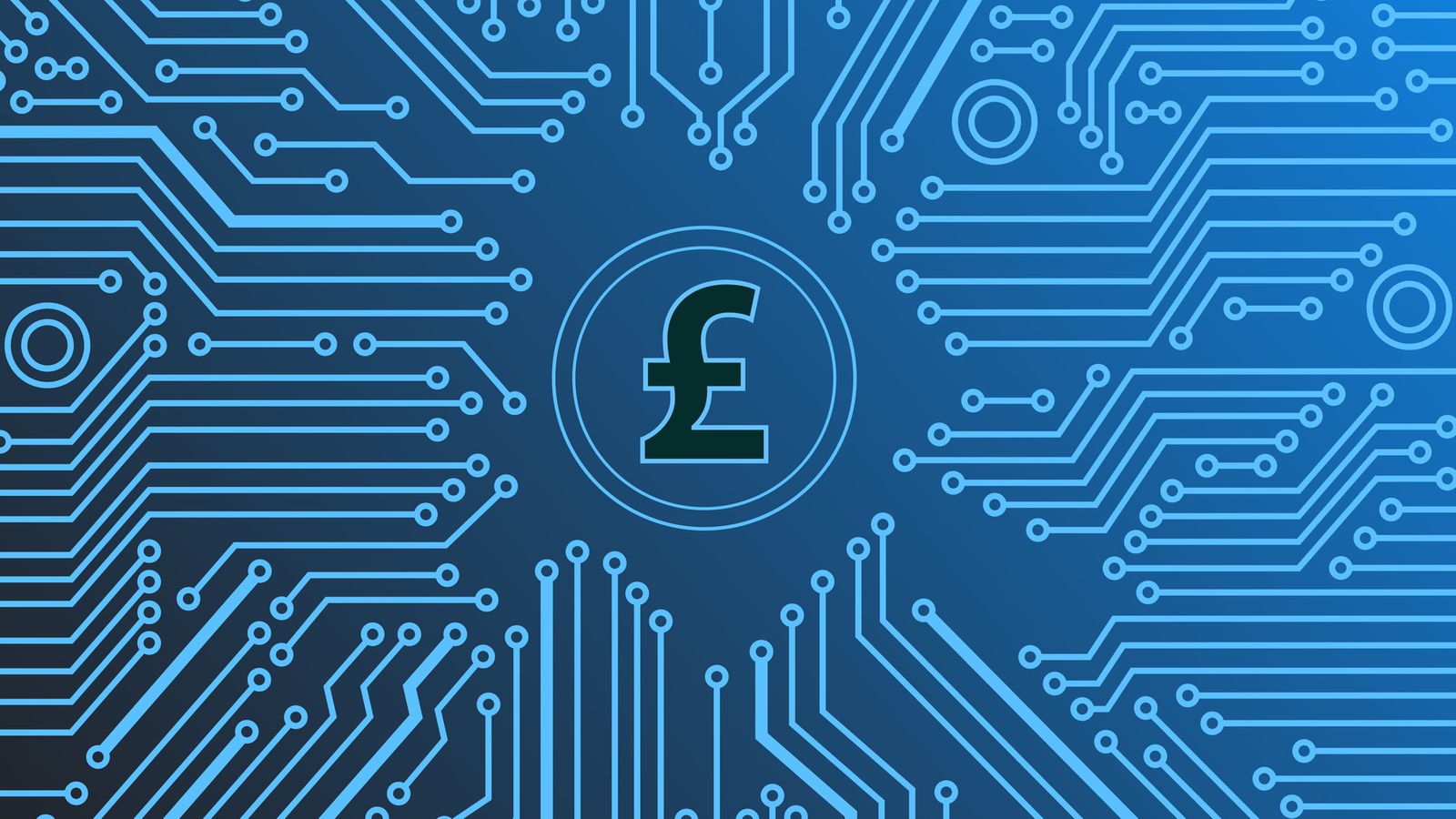Creating an official digital currency in the UK could pose “significant risks” to banks, a House of Lords committee has warned.
The Lords Economic Affairs Committee said introducing a central banking digital currency (CBDC) “would have far-reaching consequences for households, businesses and the monetary system”.
Officials from the Bank of England are among 90 central banks around the world who are exploring whether digital currencies should be introduced.
“The introduction of a UK CBDC would have far-reaching consequences for households, businesses, and the monetary system for decades to come and may pose significant risks depending on how it is designed,” the committee said in a report.
“These risks include state surveillance of people’s spending choices, financial instability as people convert bank deposits to CBDC during periods of economic stress, an increase in central bank power without sufficient scrutiny, and the creation of a centralised point of failure that would be a target for hostile nation-state or criminal actors.”
Experts couldn’t convince peers of CBDC
The committee made its conclusions after hearing testimony from witnesses, including the Bank of England’s Governor, Andrew Bailey, his deputy Sir John Cunliffe, economic secretary to the Treasury, John Glen and senior Treasury official Charles Roxburgh.
Money matters: Why inflation really is ‘a thing’
Pound plunges as Bank of England resists pressure to raise interest rates
Pound at lowest level since 2020 as ‘stagflation’ crisis fears take hold
Experts were unable to make a “convincing case” for why the UK needs digital currency.
A ‘Britcoin’ cryptocurrency could raise the role of the state in our finances
But peers added that it is important to investigate the details of a digital currency and encouraged the Bank of England’s task force to continue looking into it.
Laith Khalaf, head of investment analysis at AJ Bell, acknowledged that there are risks with CBDC but it also brings benefits, including making it cheaper to send money abroad.
“A digital currency could also facilitate micropayments, which could become more economical if the digital currency is successful in driving down transaction charges,” he said.
“This could be useful for low-value commercial transactions, opening up the potential for customers to pay small amounts of money for a fleeting service, like reading a solitary news article instead of paying a monthly subscription.”
‘Britcoin’: Bank of England seeks views on the economic impact
Mr Khalaf added that a “digital pound” could make money “programmable”, meaning transactions happen when certain parameters are met.
Subscribe to the Daily podcast on Apple Podcasts, Google Podcasts, Spotify, Spreaker
“This could in theory include smart electric meters automatically settling bills based on usage, the automatic payment of taxes at the point of a transaction, or taxpayers claiming immediate tax refunds on pension contributions.
“However, these potential benefits do need to be weighed up against the risks. Particularly when you also consider that any sweeping financial innovation is likely to be a rallying cry for scammers, who will flock to the scene of any confusion to misappropriate funds wherever possible.”






















